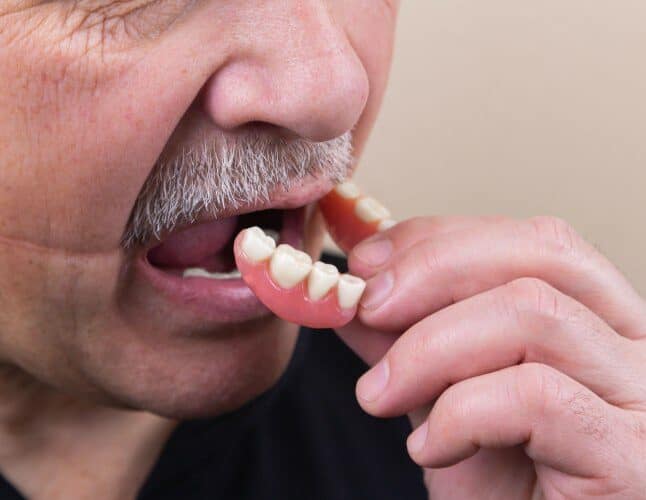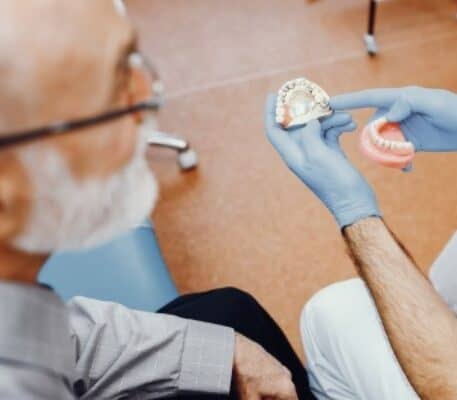Geriatric Dentistry
What Is Geriatric Dentistry?
Geriatric dentistry, also known as senior dental care, is the branch of dental medicine focused on diagnosing, treating, and preventing dental issues in older adults. As we age, our dental health faces different challenges due to physical, medical, and biological changes. These changes often require specialized attention, which geriatric dentistry provides by integrating dental care with an understanding of age-related health conditions such as diabetes, heart disease, and osteoporosis. Geriatric dentistry offers a more personalized approach that prioritizes both the functional and aesthetic aspects of dental care for elderly patients.
Why Is Geriatric Dentistry Important For Elderly Patients?
Maintaining good oral health becomes more challenging and critical as we age. Elderly patients often deal with multiple chronic health conditions, medications, and mobility limitations, which can complicate routine dental care. Geriatric dentistry ensures that these individuals receive appropriate, accessible dental treatments that take into consideration their overall health and comfort.
One of the most significant aspects of geriatric dentistry is preventing oral infections and diseases that can affect other body systems. For example, poor dental health has been linked to cardiovascular diseases, respiratory infections, and complications in managing diabetes. By providing preventive care and regular checkups, geriatric dentistry helps improve not only the quality of life of elderly patients but also their general health.

What Common Dental Issues Do Older Adults Face?
Older adults are more susceptible to a range of dental problems due to aging, medication use, and systemic health issues. Some of the most common dental issues faced by elderly patients include:
Tooth Decay and Cavities
As people age, the protective enamel on teeth wears down, making them more prone to decay. Seniors may also have a dry mouth (xerostomia) due to medication, increasing the risk of cavities.
Gum Disease (Periodontitis)
Gum disease is prevalent among older adults and can lead to tooth loss if untreated. Periodontitis may also increase the risk of other health issues like heart disease.
Tooth Loss
Missing teeth can significantly impact the elderly's ability to eat, speak, and maintain their self-esteem.
Dry Mouth
Xerostomia, often caused by medications or underlying conditions, leads to discomfort and can exacerbate other dental issues.
Oral Cancer
Older adults are at higher risk for oral cancer, which can be life-threatening if not detected and treated early.
Worn Teeth and Dentures
Teeth can wear down over time, and ill-fitting dentures can cause discomfort and lead to issues like sores and infections.
What Are The Most Common Treatments Provided In Geriatric Dentistry?
Geriatric dentistry offers a wide array of treatments tailored to the specific needs of elderly patients. The most common treatments include:
Preventive Care: Regular cleanings, fluoride treatments, and oral health education are essential to prevent tooth decay, gum disease, and other oral problems.
Periodontal Treatment: Management of gum disease with deep cleanings, scaling, and root planing to preserve the health of the gums.
Restorative Treatments: Restoring damaged or decayed teeth using fillings, crowns, bridges, or dental implants to improve functionality and aesthetics.
Denture Services: Providing custom-made dentures or adjusting and relining existing ones to ensure a comfortable fit.
Oral Cancer Screenings: Routine screenings to detect early signs of oral cancer, especially for high-risk elderly patients.
Salivary Gland Treatment: Addressing dry mouth and ensuring adequate saliva flow through medications and lifestyle changes.
Minimally Invasive Treatments: Using gentle techniques and tools that are easier for elderly patients to tolerate, such as air abrasion or lasers for certain procedures.

Please call 8097869836. Urgent care is provided usually on the same day.
What Are The Best Practices For Maintaining Healthy Gums In The Elderly?
Healthy gums are essential for the overall health of elderly patients. The following practices can help maintain gum health:
Daily Brushing and Flossing: Encourage brushing with a soft-bristled toothbrush twice a day and flossing to remove plaque buildup. Electric toothbrushes may be easier for elderly patients to handle.
Regular Dental Visits: Routine dental checkups and professional cleanings can help detect gum disease in its early stages and prevent further complications.
Hydration: Staying well-hydrated helps combat dry mouth and ensures healthy saliva production, which is crucial for gum health.
Balanced Diet: Eating a nutrient-rich diet with plenty of vitamins and minerals supports oral health and promotes gum healing.
Quit Smoking: If applicable, quitting smoking reduces the risk of gum disease and other oral health issues.
How Can Older Adults Reduce The Risk Of Oral Cancer?
Reducing the risk of oral cancer is particularly important for older adults. Here are key preventive steps:
Regular Oral Cancer Screenings: Annual screenings can catch oral cancer in its early stages, improving the chances of successful treatment.
Limit Tobacco and Alcohol Use: Smoking and excessive alcohol consumption are major risk factors for oral cancer, so avoiding them is essential.
Healthy Diet: A diet rich in fruits and vegetables can provide antioxidants that help prevent cancer.
Take The First Step Toward A Brighter Smile
Smiling Teeth believe everyone deserves a healthy, confident smile, no matter their age. Our expert dental team is dedicated to providing top-notch care tailored to your individual needs. Whether it’s a routine check-up, cosmetic enhancement, or advanced treatment like dental implants, we’re here to ensure you receive the best care possible. Don’t wait—book your appointment today and experience the difference at Smiling Teeth. Let us help you achieve the smile you’ve always wanted.
People also ask
The absence of saliva thus has many deleterious consequences to the host. The main oral health problems of old age that is mouth dryness and dental caries have been attributed to the reduced salivary flow.
In the elderly, caries mostly affects teeth roots. Caries is a progressive infectious disease that, without treatment, leads to the destruction of the dental organ and can damage the surrounding tissues.20
Because older adults often have receding gums, cavities are more likely to develop at the root of the tooth. Dry mouth also causes bacteria to build up in the mouth more easily, leading to tooth decay. Oral cancer is more common in people older than age 50 and is almost three times greater in men than in women.
Periodontal disease is one of the leading causes of tooth loss. Injuries and oral-dental trauma may also cause tooth loss. Risk factors for tooth loss include poor oral hygiene, tobacco use, dry mouth, gum disease (gingivitis) and some prescription medications.
Dental implants can improve the appearance of a senior’s smile by filling in gaps from missing teeth. Dental implants can help to preserve bone density in the jaw, which can prevent further deterioration and improve overall oral health.
